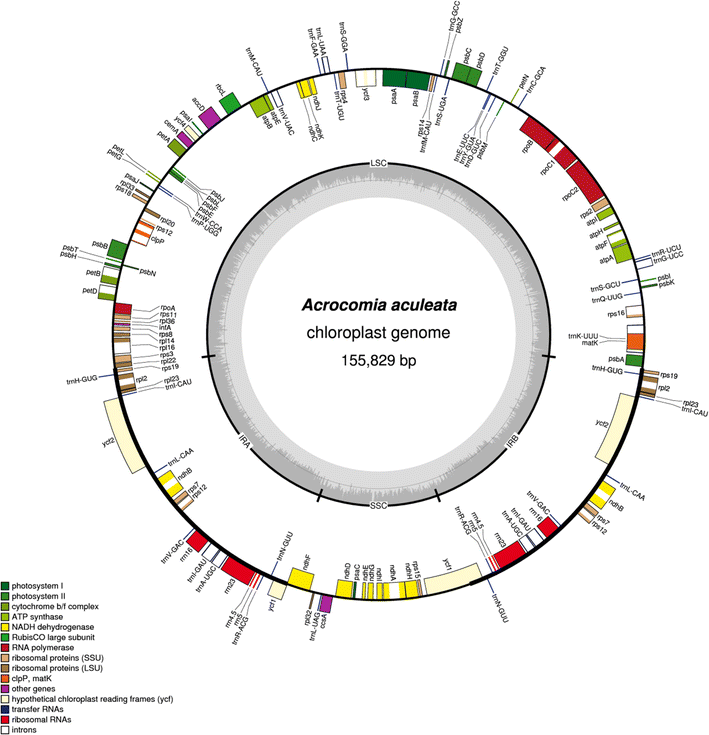The complete plastome of macaw palm [Acrocomia aculeata (Jacq.) Lodd. ex Mart.] and extensive molecular analyses of the evolution of plastid genes in Arecaceae.
segunda-feira, fevereiro 18, 2019

Authors: de Santana Lopes A., Gomes Pacheco T., Nimz T., do Nascimento Vieira L., Guerra MP., Nodari RO., de Souza EM., de Oliveira Pedrosa F., Rogalski M.
Abstract: The plastome of macaw palm was sequenced allowing analyses of evolution and molecular markers. Additionally, we demonstrated that more than half of plastid protein-coding genes in Arecaceae underwent positive selection. Macaw palm is a native species from tropical and subtropical Americas. It shows high production of oil per hectare reaching up to 70% of oil content in fruits and an interesting plasticity to grow in different ecosystems. Its domestication and breeding are still in the beginning, which makes the development of molecular markers essential to assess natural populations and germplasm collections.
Therefore, we sequenced and characterized in detail the plastome of macaw palm. A total of 221 SSR loci were identified in the plastome of macaw palm. Additionally, eight polymorphism hotspots were characterized at level of subfamily and tribe. Moreover, several events of gain and loss of RNA editing sites were found within the subfamily Arecoideae. Aiming to uncover evolutionary events in Arecaceae, we also analyzed extensively the evolution of plastid genes.
The analyses show that highly divergent genes seem to evolve in a species-specific manner, suggesting that gene degeneration events may be occurring within Arecaceae at the level of genus or species. Unexpectedly, we found that more than half of plastid protein-coding genes are under positive selection, including genes for photosynthesis, gene expression machinery and other essential plastid functions. Furthermore, we performed a phylogenomic analysis using whole plastomes of 40 taxa, representing all subfamilies of Arecaceae, which placed the macaw palm within the tribe Cocoseae.
Finally, the data showed here are important for genetic studies in macaw palm and provide new insights into the evolution of plastid genes and environmental adaptation in Arecaceae.
To read the full article, click here.
Page: NCBI


















0 comentários
Agradecemos seu comentário! Volte sempre :)